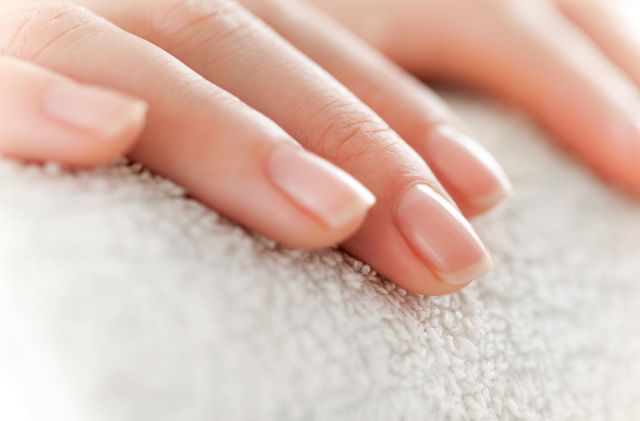Updated on September 11, 2023.
There are many nutritional supplements that claim to help you grow luxurious, long hair and nails. One of the more popular is vitamin B7, otherwise known as biotin. There’s a good chance you’ve come across it on the shelves of your pharmacy or supplement store, or on social media.
Maybe you even have a prescription for it. A 2022 study published in the Journal of Dermatological Treatment found that more than 43 percent of the 149 physicians surveyed had prescribed biotin, and more than 39 percent recommended supplements containing the vitamin for their patients’ hair and nail problems.
What is biotin, exactly, and where does it come from? How might it benefit your health? Are there downsides? Here’s what you need to know.
What is biotin?
Biotin is a water-soluble vitamin important for breaking down food and controlling hormonal signals throughout your body. It appears naturally in some foods and can also be found in a variety of supplements. (Fun fact: For a long time, biotin supplements have been used to treat horses with hoof problems.)
How are biotin supplements used?
When dermatologists first put biotin supplements to the test in humans in 1993, in a study published in the journal Cutis, taking them was linked to a 25 percent increase in nail thickness for people with brittle nails. Since then, healthcare providers (HCPs) have often recommended the pills for that purpose, as well as hair loss and thinning hair. This is due in large part to biotin's role in the production of keratin, a protein that helps form hair, nails, and skin.
Despite widespread anecdotal evidence, however, the science supporting biotin's use for these purposes is weak. The claims are backed only by a handful of small studies and case reports. And in fact, there have been no randomized, controlled trials showing that biotin works for healthy individuals.
Biotin supplementation is also used to treat biotin deficiency, a rare, typically congenital condition in which your body has problems absorbing or processing the biotin in your diet. Left untreated, it can cause a range of issues, including rashes, hair loss, digestive problems, seizures, and developmental delays.
Sometimes, daily biotin supplements are recommended for people who are pregnant or breastfeeding.
Where do you get biotin?
If you’re over 18 years old, an adequate biotin intake is considered to be 30 micrograms each day. This rises to 35 micrograms if you’re lactating.
In the United States, diet provides enough biotin to meet the needs of most people. If you think you may need more, you can try eating more biotin-rich foods. These include:
- Whole wheat bread
- Eggs
- Pork
- Organ meats like beef and chicken liver
- Legumes like peanuts and soybeans
- Sunflower seeds
- Sweet potatoes
- Fish, especially salmon
- Vegetables like spinach and broccoli
Biotin supplements don’t have any known side effects, but the U. S. Department of Agriculture (USDA) doesn’t recommend taking them every day if they’re not prescribed and you’re otherwise healthy, as they can sometimes cause tests to give false test results. This includes tests for certain hormones as well as troponin, a protein that’s used to help diagnose heart attacks. In fact, the U.S. Food & Drug Administration (FDA) issued warnings about biotin in 2017 and 2019 due to its effects on troponin tests.
The bottom line
Biotin supplements are common, but there’s little evidence to support their effectiveness, as well as a good chance you already get enough biotin in your food. If you’re still curious, check with your HCP to see if supplements might work for you.







